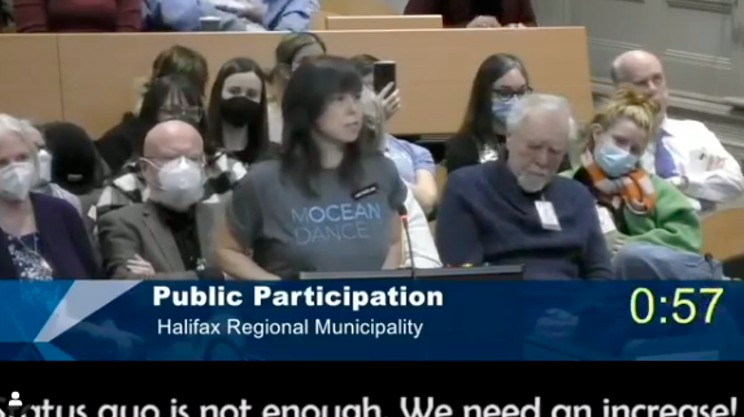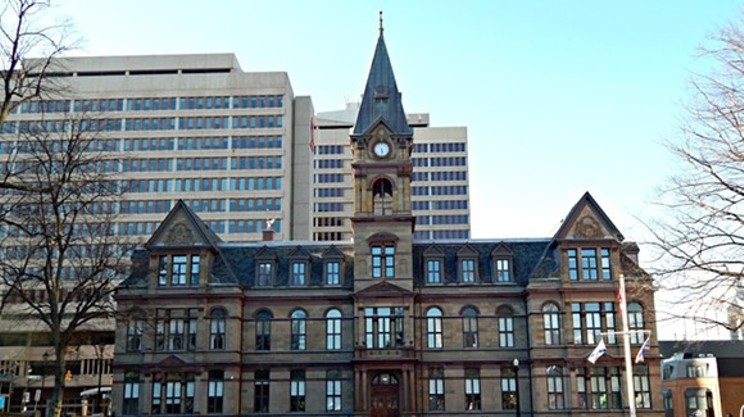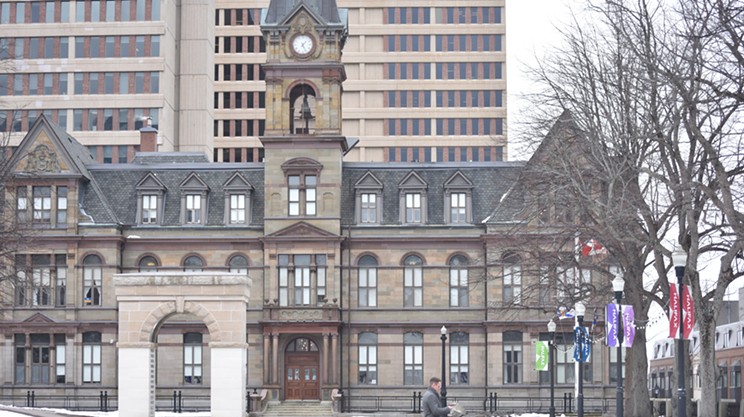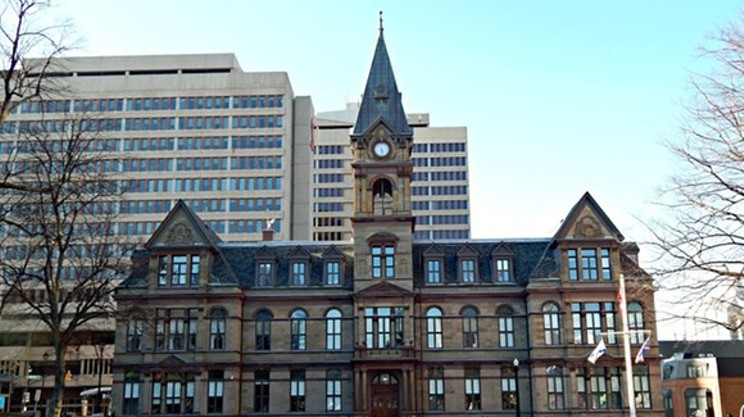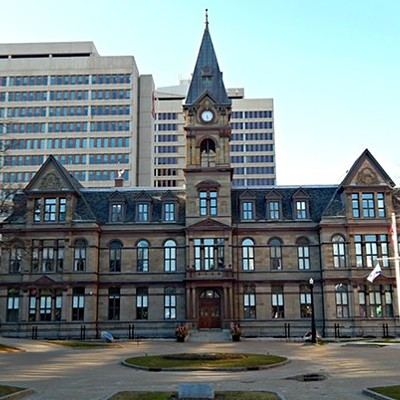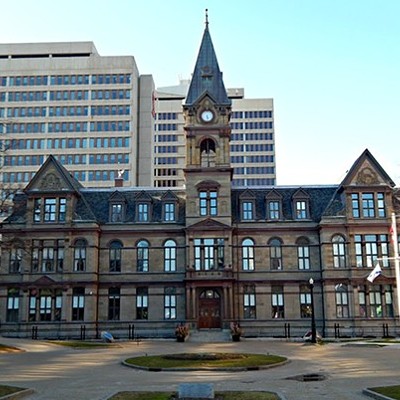Our city councillors are doing better than their provincial and federal peers these days, although that can sometimes be hard to appreciate. Over the last week, HRM council debated how the public’s money should be used and, mostly, made good decisions for the future of the city. Council didn’t cut arts funding. Instead, councillor Waye Mason got an increase to arts funding by adding $125,000 for grants to the budget adjustment list. Councillors agreed with the decision, mostly. David Hendsbee tried to get that $125,000 knocked down to $50,000 but was only supported by Trish Purdy and Paul Russell.
There is currently $560,000 in grants up for grabs for artists who apply to the city—the new money would increase that to $685,000. City staff told councillors that artists in the city requested $1,155,829 in grants last year.
Council also did some other business in its three meetings last week. It decided to regulate short-term rentals in the near future. Come September, ghost hotels will no longer be allowed in the city. The goal of the regulation is to try and get more existing rental units back on the market as stable long-term housing by removing short-term rentals as an investment opportunity, and instead treating housing like housing.
City Hall also decided to send an additional $1.26 million to the BAL at the urging of Max Chauvin, director of housing and homelessness for the HRM, to start implementing the Framework to Address Homelessness. The new money and the rental regulations are all part of an effort by council to stem the growing homelessness crisis in Halifax. It’s getting really bad. Chauvin told council that if Tim Houston’s Tory government lifts the rent cap with no other supports in place, 500 to 1,000 people will become homeless, and the city would “have to figure out how refugee camps work.”
This is a really interesting time to be watching municipal politics in Halifax because of a few key differences between the city’s councillors and their federal and provincial counterparts.
The first difference is that a lot of council debates happen in public. There are no parties in Nova Scotia municipal government, there are no cabinet or caucus meetings. Councillors have to, to some degree, hash out their political differences in public.
The second is a mechanical difference in how committees work in Halifax compared to the other two levels of government. For those who don’t know, committees are supposed to be the place where politicians get the information and evidence they need from experts to better inform the decisions they make on the legislation in front of them.
At the federal level, the committee process has been perverted by the capitalist business practice known as regulatory capture. Big companies know that no one except nerds pays attention to the fine details of policy making. So not many people have noticed or spent time breathlessly reporting that the expertise committees rely on for policy decision-making comes from “stakeholder engagement.” Sometimes that stakeholder engagement is not bureaucratic jargon; sometimes, it’s passionate displays of activism at the start of an arts budget meeting. But sometimes, the pharmaceutical industry is able to neutralize the federal regulatory body designed to hold drug prices, and profits, in check.
Sometimes it’s the fact that even though the federal government is good at coming up with plans to hold rail companies accountable for rail maintenance, it falls flat on the enforcement side of things. The rail industry has been able to prevent the federal government from making it improve safety, in spite of Lac Megantic, according to the federal government’s auditor general.
The city is far less vulnerable to regulatory capture in the same way the feds are. For example, the experts HRM is relying on for the housing and homelessness strategy are Chauvin and the team around him. When they present to council they explicitly and exclusively centre unhoused people in their policy suggestions. In last week’s meeting, councillors told Chauvin’s team to make sure people living in cars could access the public help provided by this new money.
It’s expected that his team will come back to council with options, like a list of which municipal parking lots can easily be converted into helping people live in cars and a plan to convert them. But it’s also possible his team comes back with ambitious options, like using section 188 of the HRM charter in a creative way to force companies with large, unused parking lots to provide power, water and facilities to cars parked there, and forcing the companies to pay a fee for opting out. Not to say that Chauvin’s team will recommend that, but they have the freedom to explore it if they deem it to be in the best interest of the city’s catastrophically growing unhoused population.
Essentially the city’s policy researchers have a lot more independence from political meddling than their federal counterparts.
This is also why it’s so exciting that the city is moving ahead with its suburban planning review. And there are a few reasons to be excited here. As The Coast has covered before, the suburbs are a Ponzi scheme. But top bureaucrats like chief financial officer Jerry Blackwood (and his predecessor Jane Fraser) and chief administrative officer Cathie O’Toole have been clear about making sustainability a priority.
And for their part, some of our elected officials at least publicly acknowledge the scope and scale of the challenges in front of them. In a previous council meeting, Sam Austin encouraged his fellow councillors to treat this like the Second World War—a massive civic effort will be required to restructure Halifax into an equitable, sustainable city. And councillors have another chance in the coming weeks to further demonstrate their commitment to this city by voting to implement the upcoming public safety strategy.
And it may seem weird to be this intense about things that are painfully, incrementally slow, but that’s because most people don’t realize history happens a lot slower in real life than how it’s taught in school. For example, the fall of Rome was not a dramatic event that unfolded in an afternoon. It took hundreds of years. With climate change, inequality and a slowly re-escalating land war in Europe, we’re likely already living through the throes of the end of an era. It’s probably why things feel so completely messed up. Although historians, after we’re long dead, will be the ones to make the official call on that.
Why it’s important to understand how long the Roman empire took to fall is because it sheds new light on modern-day requests. It requires us to understand that when businesses want free parking to remain, they are not asking just for free parking. They are asking us to continue a trend of subsidizing business at the cost of the planet. And what damage does that policy choice have if it, and decisions like it, are repeated for hundreds of years?
That’s what’s at stake in this budget process. The city of Halifax is on the verge of shifting long-standing policy choices. This process may finally see a city budget start to genuinely prioritize people, the planet and sustainability over cars and the economy.

